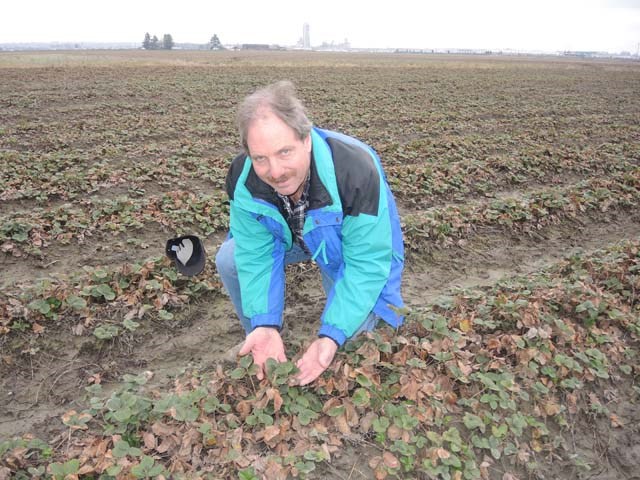The province announced Thursday morning that it will increase the wages for piece rate farm workers, but one Richmond farmer says those costs will simply be passed on to customers.
The increase is part of a provincial raise to a group of “alternate minimum wage earners” which also includes liquor servers, resident caretakers, live-in camp leaders and live-in home-support workers. For Bill Zylmans, owner of W&A Farms, the 11.5 per cent increase to piece rates scheduled for January 2019 will likely mean farmers will have to raise the price of produce.
“It’s just one more that’s going to make agriculture just that much more expensive,” Zylmans told the Richmond News. “Our food pricing is going to increase just because of all the things coming around whether it’s labour, whether its gasoline.”
Piece rate farmworkers refer to fruit and vegetable pickers being paid by weight of the produce they pick rather than an hourly rate.
In a provincial consultation with farm owners, the Fair Wages Commission, which works to advise the government on how to raise minimum wages, found that employers preferred the piece work system because it provided an incentive to their workers as they had the potential to earn more than minimum wage.
However, other workers’ advocate groups want the piece work system abolished, citing long work hours, poor housing and few to no workers' rights as some of the conditions fruit pickers face.
“While we enjoy fresh fruit this season, the hard-working fruit pickers will not enjoy a raise,” said Trish Garner, community organizer of the BC Poverty Reduction Coalition in a press release.
“Pickers earning the lowest wages are predominantly women of colour, and the (Fair Wages Commission) itself quotes a former ministry employee who says, ‘it is hard to see farm worker piece rates as anything other than racist and abusive.’ This must end and we expect the government to do this investigation quickly and with the workers themselves.”
For Zylmans, who does pay by piece rates for his workers picking strawberries, the bigger issue is incentivizing them to work well.
“We don’t penny pinch. I’m looking for quality work because I want my strawberries picked well,” he said. “We want to pass on a good quality fruit to the public.”
Zylmans also pointed out that raising minimum wage often requires increasing all wages.
“Everyone up the pay scale wants the same incremental increase,” he said, adding that the cost of living is rising as a whole.
“What did you buy in the last two weeks that was cheaper than you bought last year?”
While the other industries with alternate minimum wages will see their increases this June, Agriculture Minister Lana Popham said the government extended the farm work transition period to January 2019 in order to balance the needs of workers and the agriculture industry.
“This is a critical industry for B.C. and we want to make sure any changes made help give it the strong, sustainable future it deserves,” said Popham in a press release. “We believe everyone who contributes to this industry should have their say as we move toward making wages fair and life more affordable for farm workers.”
Zylmans said this raise was no surprise, but that he simply hopes the public understands the ripple effects of these changes.
“Is this good for society that minimum wages are going up? Probably,” he said. “But it’s not all one-sided. Your costs are going to go up.”



